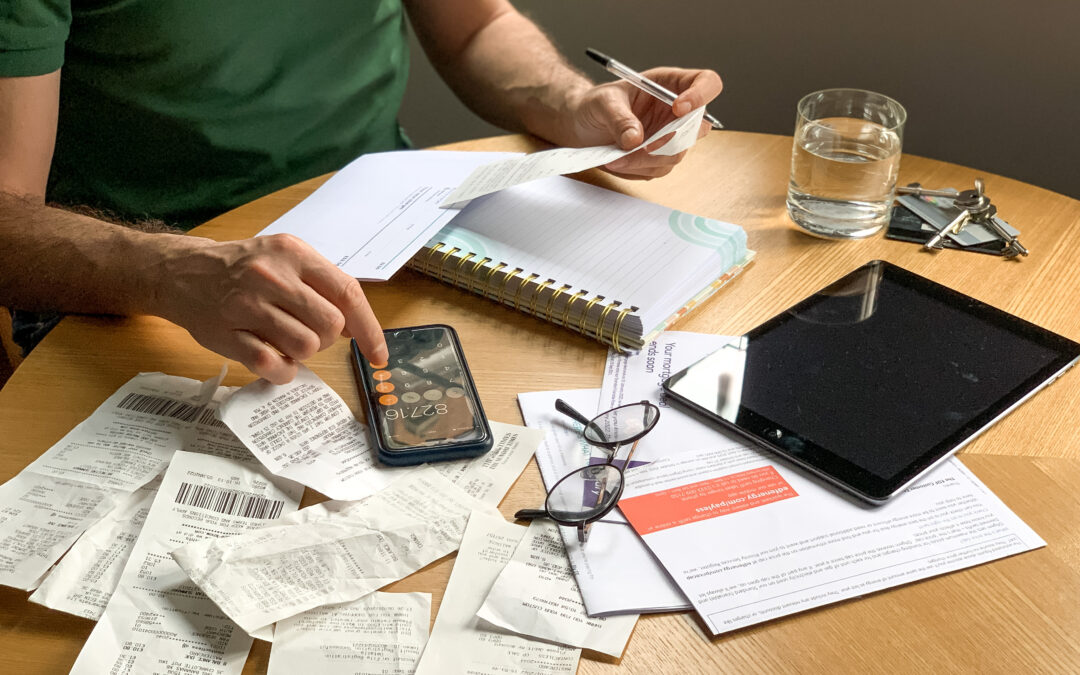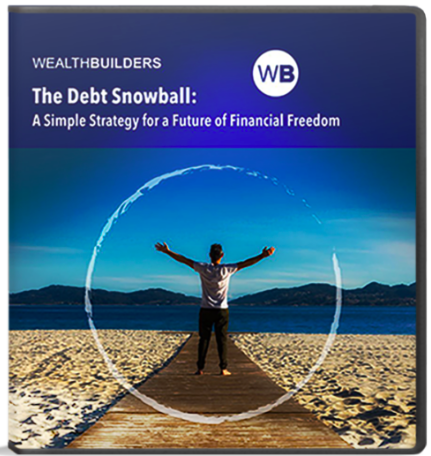There’s a four-letter word that has gotten a lot of hate in the Christian community: debt. It makes sense why– consumer debt has prevented millions of people from building wealth and getting ahold of their finances. According to The Motley Fool, the average American has $6,365 in credit card debt and $23,479 in auto loans. But what exactly does the Bible say about paying your debt, and how should we think about debt as Christians?
What is Debt?
Before we talk about debt, it’s helpful to define money. In short, money is just a tool we trade for goods and services. It replaces our need to trade things like chickens and apples in order to buy things.
How we use money reflects our values. So, money cannot be good or evil– it’s an inanimate object! Humans, of course, can be good or evil. Money magnifies what’s in our hearts.
So, we should look at debt from a similar lens. Debt is something, typically money, that is owed or due. People use debt for all sorts of reasons:
- Emergencies where they need extra finances to make ends meet
- To purchase things like clothes, furniture, and cars that are outside of their budget
- To pay for higher education
- To pay for medical bills
- To live beyond their means
- Using debt as leverage to purchase assets and build wealth
As followers of Jesus, we don’t need to make moral judgments on the financial decisions of others (Matthew 7:1). However, we do need to examine our own money motives carefully in the light of scripture. With that, here are ten Bible verses about debt to help you discern what’s right for you.

What Does The Bible Say About Paying Your Debt? 10 Bible Verses About Debt
Repay Your Debts
1. “The wicked borrow and do not repay, but the righteous give generously.” (Psalm 37:21 NIV)
2. “Pay to all what is owed to them: taxes to whom taxes are owed, revenue to whom revenue is owed, respect to whom respect is owed, honor to whom honor is owed.” (Romans 13:7, ESV)
3. “If a man borrows anything of his neighbor, and it is injured or dies, the owner not being with it, he shall make full restitution.” (Exodus 22:14, ESV)
Do Not Borrow Excessively
4. “The rich rule over the poor, and the borrower is a slave to the lender.” (Proverbs 22:7 NIV)
5. The wicked borrows but does not pay back, but the righteous is generous and gives. (Psalm 37:21, ESV)
Lend Freely
6. “At the end of every seventh year you must cancel the debts of everyone who owes you money.” (Deuteronomy 15:1, NLT)
7. “And if you lend money only to those who can repay you, why should you get credit? Even sinners will lend to other sinners for a full return. “Love your enemies! Do good to them. Lend to them without expecting to be repaid. Then your reward from heaven will be very great, and you will truly be acting as children of the Most High, for he is kind to those who are unthankful and wicked.” (Luke 6:34-35, NLT)
8. “Do not withhold good from those to whom it is due when it is in your power to do it.” (Proverbs 3:27)
9. “If among you, one of your brothers should become poor, in any of your towns within your land that the Lord your God is giving you, you shall not harden your heart or shut your hand against your poor brother, but you shall open your hand to him and lend him sufficient for his need, whatever it may be.” (Deuteronomy 15:7-8, ESV)
When You Loan Generously, God Blesses You
10. “Once I was young, and now I am old.
Yet I have never seen the godly abandoned
or their children begging for bread.
The godly always give generous loans to others,
and their children are a blessing.” (Psalm 37: 25-26 NLT)
Ready to Get Out of Debt for Good?
If you want to know how to get out of debt as quickly as possible, The Debt Snowball: A Simple Strategy for a Future of Financial Freedom, is a course to show you how to destroy consumer debt forever. You will learn how to create a foundation of financial freedom in nine short steps. Click the button below to purchase this life-changing product for just $25.
How to Borrow Wisely
If you are reckless with debt, it can easily consume your life. You can get stuck in a debt cycle where accruing interest every month can make it challenging to get ahead. The longer you put it off, the harder it can be to find a quick way to get out of debt.
Wise borrowing looks like not borrowing to purchase liabilities–things that go down in value–if you can help it. In addition, you should not borrow more than you can repay each month.
Money makes a great servant but a terrible master. As Jesus said, “No one can serve two masters. Either you will hate the one and love the other, or you will be devoted to the one and despise the other. You cannot serve both God and money.” (Matthew 6:24 NIV)
Getting out of consumer debt is one of the best things you can do to set yourself up on a strong financial foundation. But what comes after that?
Using Debt for Good:
When you are in debt, interest works against you. For example, every month that a balance remains on your credit card, interest as high as 30% gets tacked onto your bill.
However, once you are out of debt, there is extra cash in your budget that’s no longer going to debt repayment. You can now put those excess funds into assets that help you build wealth.
In other words, you reverse the power of interest to work in your favor!
Stocks and tax-advantaged retirement accounts are a great way to start, but they shouldn’t be the only component of your strategy.
As King Solomon wisely said in Ecclesiastes 11:2 (NIV), “Invest in seven ventures, yes, in eight; you do not know what disaster may come upon the land.”
To borrow wisely and maximize your wealth building potential, you will need to use debt as leverage. Leverage enables you to buy more valuable assets than you could with your own money. How? By using borrowed capital or debt to increase the potential return of an investment.
(Check out this blog on the law of leverage to learn more about how it works.)
Using leverage requires wisdom; as we read in the above bible verses about debt, it should not be done recklessly. If you’re going to use leverage to invest in something like real estate or business, develop financial knowledge and implement strategies that ensure you’ll be able to repay the loan.
We hope this blog helped you answer the question, “What does the Bible say about paying your debt?” If you want to be free from debt (including your mortgage) as quickly as possible, The WealthBuilders Debt Snowball USB can help. This video teaching will give you a simple, 9-step strategy to get out of debt and start your future of financial freedom today. Click here to purchase this life-changing product for just $25.




